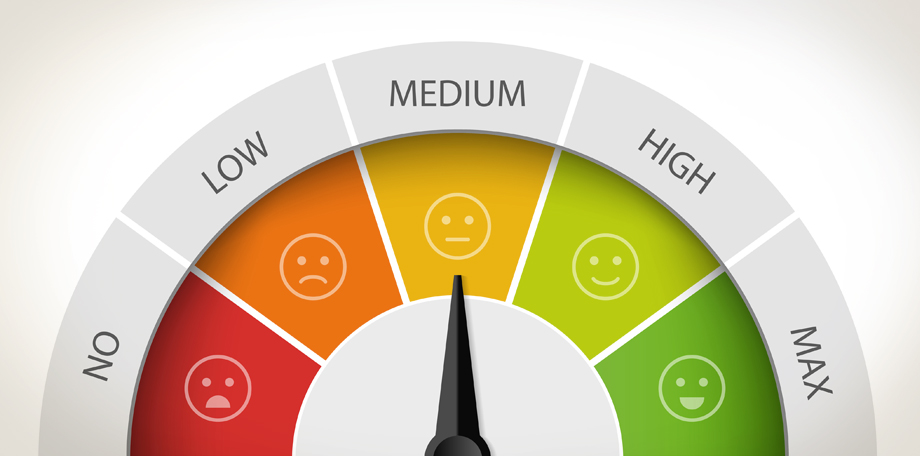Each year it seems we get busier and busier. How many of us have thought at one point: “I can’t possibly get any busier than this!” Then we add more to our schedule, whether it’s a new job, hobby, relationship or child’s school activity. Then we think: “This is the absolute busiest I can be – I can’t possibly fit one more thing in my life!” And so on and so on. We do add more to our plates constantly in life; we just gradually adjust and adapt.
We calculate our weeks by hours and try to find ways to create more time in our schedules. But when we are able to squeeze a few more minutes into a day, why do we still feel so overwhelmed?
With a new year almost here, it’s the perfect time to reflect on the past year and adapt new habits to be our best selves. Instead of making a list of 10 unrealistic resolutions that you won’t even remember come mid-February, let’s focus on how we spend our time in the new year.
Related: Swap Your New Year’s Resolution with an Intention
Most of us follow a strict calendar which is necessary to remember important meetings at work, doctor’s appointments and your child’s sporting events. But instead of scheduling our days based on time, what if we looked at our calendar based on our bandwidth? Similar to how the bandwidth on your internet determines how much data can be transmitted over time, each of us have our own bandwidth for the amount of work we can take on in any given day.
But that bandwidth is affected by more than just the clock. It’s your mental real estate. Think of your day like a game of tug of war. On one side are the heavy, stressful things you have to do which takes up emotional space. On the other side are the things that you want to do, that fuel you. The two are at constant battle, and if there’s too much tugging on one side, that side wins the game.
What reduces your bandwidth?
Think about the tasks you face every day with dread. Maybe it’s making that doctor’s appointment for your child that you’ve been putting off. It’s a task that will literally take you five minutes to complete but the thought of having to call, check your calendar with all of its moving parts and find a mutual date for everyone just overwhelms you. It may not take a lot of time, but it’s requiring attention and that’s draining.
If you find yourself always choosing the easy things on your to do list at work, you aren’t alone. New research by the Kellogg School of Management suggests that people gravitate toward simpler tasks when struggling with a heavy workload. Completing the easy stuff creates a sense of satisfaction without anxiety. But that strategy doesn’t pay off in the long run. Researchers found that avoiding hard tasks cuts off opportunities to learn and improve one’s skills. The study encouraged managers to break projects into smaller pieces so that employees still get the satisfaction of completing each step.
What grows your bandwidth?
On the other end of the rope, we have tasks that fuel us. This is usually when we help someone or involves a topic that we are extremely knowledgeable about. It’s because we know we can succeed at something and do it relatively fast. For example, a friend emails you with a question about gardening. This is a hobby that you make time in your life for and you’re pretty proud of. Your garden is thriving, and you know how to answer her question about seedlings easily. Despite having an inbox full of emails of higher priority, you’ll push everything aside to make room for things that make you feel good or give you energy.
For me, that’s exercise. Whether it’s going for a run or a bike ride, that activity refuels my tank and gives me energy. I have a career coaching client who is in a band. He’s a Chief Information Officer by day, but rock star at night. Being able to utilize his talents in a different way than he does in his job gives him energy to be better both professionally and personally.
How to balance your bandwidth
The more you make time for the things that nourish you, the more bandwidth you will have, and it won’t seem as daunting to deal with the tasks that tend to suck your bandwidth. It’s a matter of balancing that tug of war of game.
Ask yourself this question: what do you have to get rid of in order to make time for something else? Instead of saying yes to everything, make choices. When another school activity comes up, don’t think of it in terms of the time it will take, but measure whether you can commit in terms of your bandwidth. Be discerning with your commitments. Say yes to those things that energize you, and no to the things that don’t as often as you can.
How do you know what should stay and what should go? For one or two weeks, take inventory of your time. List all of the activities you do and rate them on a scale of -5 to +5 on whether it gave you energy or decreased your energy. For example, weekly meetings with your team may rank as a painful one (i.e. -4) but a dinner out with your wife may rank as a +5 as energizing and enjoyable.
This is a similar approach to the one outlined in the book Designing Your Life by Bill Burnett and Dave Evans where you write down all of the activities that you do to see where you spend your energy each day, and then use a worksheet to map it. The book’s premise is that design thinking can help us create a life that is both meaningful and fulfilling. This exercise is a helpful way to gain clarity on next steps.
A new year, a new you
To begin your new year of scheduling with intention, pick out a quality that you want to bring into your life for the year. That’s not “lose some weight” or “write a book,” which are vague resolutions that 80% of people will fail to stick to.
Instead, intend to add more exercise to your life. Then, think about what exercise you like. You’ve always heard kickboxing is fun, and you’ve been meaning to try it for years. So in January, sign up for a kickboxing class. Not sure where to fit it in? The gym offers the class on Mondays, Wednesdays and Fridays. You know three days a week is too much of a commitment right now, so choose one or two days that you can work into your schedule. Take small steps to find ways to make your intention work for you.
Become your best self this year by approaching time differently – starting now. It will no longer seem elusive, and you’ll be able to use it to your advantage by becoming energized, invigorated and excited about life.
Download our Top 20 Books for Succeeding in Life, Love and Career




